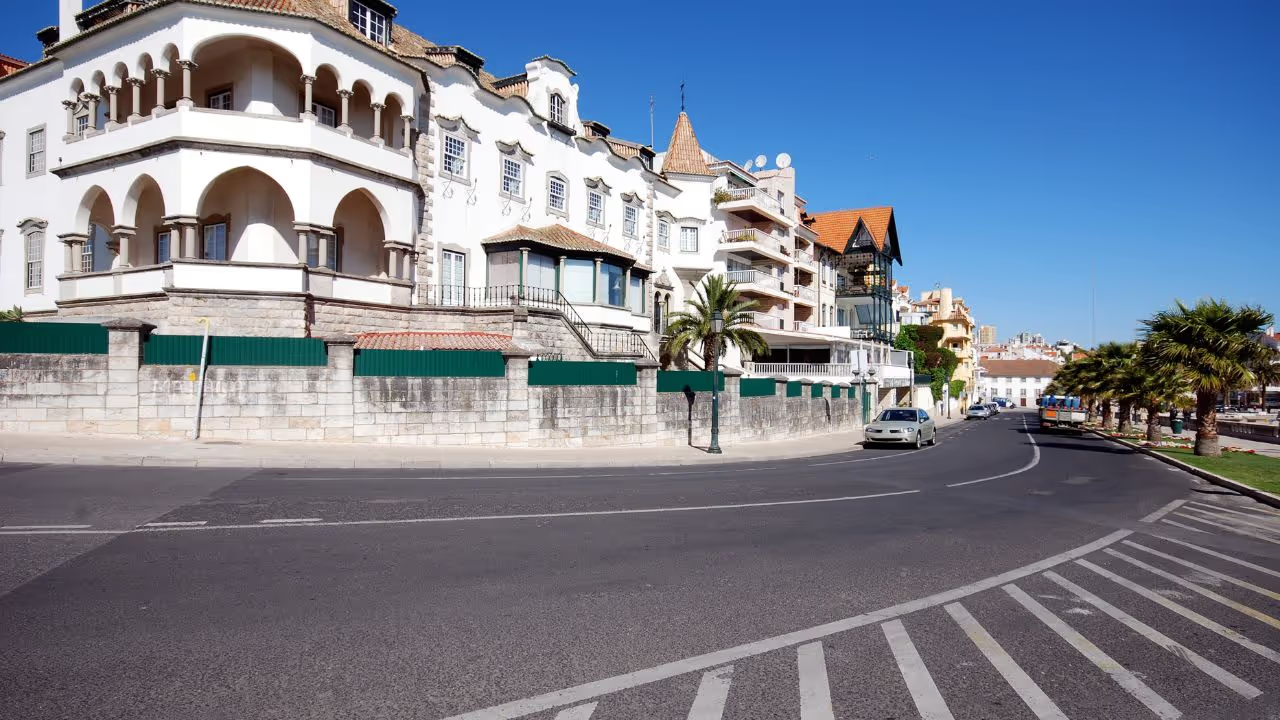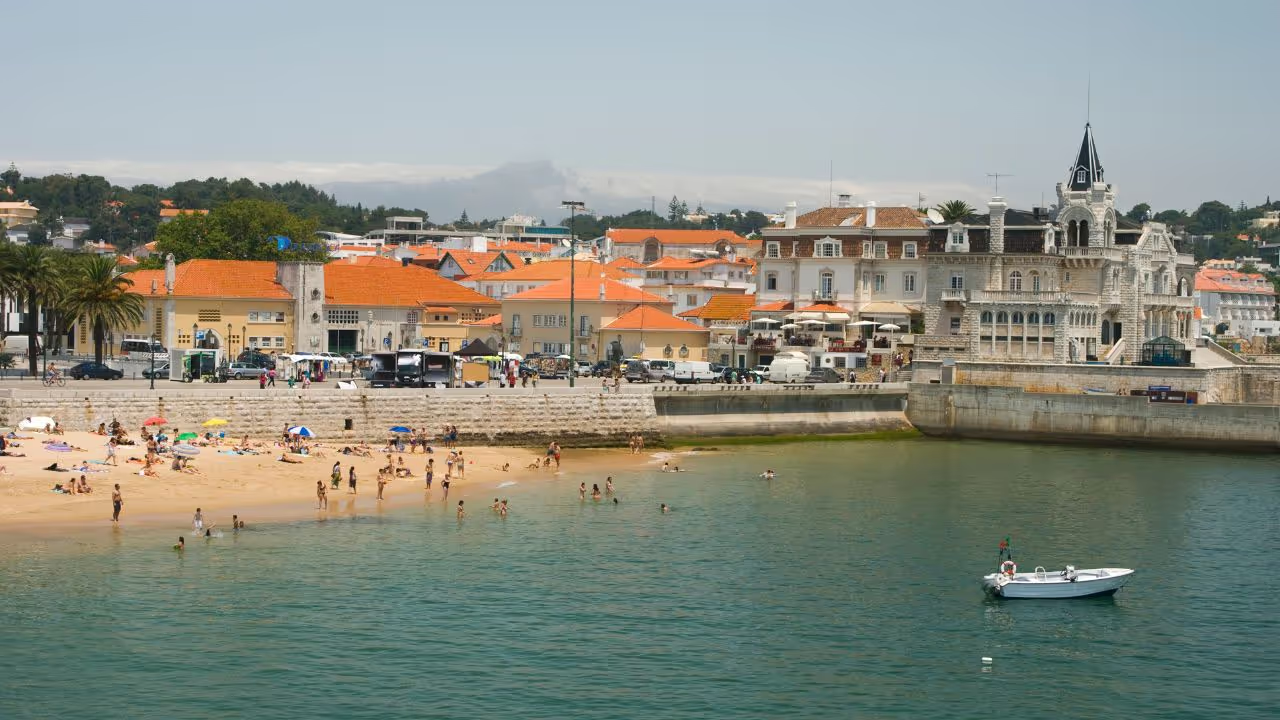Relocation Help: Moving to Portugal

1. Overview: Why Portugal and Cascais?
Portugal has grown as a destination for people seeking a milder climate, coastal lifestyle, and relatively stable costs compared to many Western European locales. Cascais, on the Lisbon Coast, often tops expat lists due to beaches, good infrastructure, and proximity to Lisbon. Before diving in, it helps to understand broad steps: visa options, residency rules, housing market, and services like healthcare or schooling.
Many choose Cascais for its mix: historic centre with cobbled streets, seaside promenades in Guia or Cascais Central, quieter suburbs like Alcabideche or Birre, and upscale Estoril nearby. Expat communities here share advice through online groups and meetups (personal.santaferelo.com). English is widely spoken in services, though learning basic Portuguese eases daily life.
Key considerations:
- Budget planning: cost of living in Cascais can be higher than interior Portugal but lower than many major cities (personal.santaferelo.com). Check Cost of Living in Cascais for local figures.
- Purpose of move: retirement, remote work, investment, or family relocation. Each has different visa/residency and housing needs.
- Timeline: some visas (e.g., D7) take months to process; planning ahead avoids gaps.
- Support network: engaging a buyer’s agent or relocation service through Buy to Relocate can streamline steps.
Overall, Portugal offers transparent processes but with deadlines and paperwork. Early research and local guidance make the move smoother.
2. Visa & Residency Options
Choosing the right visa is crucial. Non-EU citizens commonly use:
- D7 Visa (Passive Income Visa): For applicants with stable passive income (pension, rental, investments). In 2025, minimum annual income around €10,440 or monthly ~€870, though many sources advise showing higher for dependents or cushion (immigrantinvest.com) (getnifportugal.com). Requirements include proof of accommodation, clean criminal record, and health insurance.
- Digital Nomad or D8-like visas: Some programs cater to remote workers, requiring proof of remote employment and income above threshold.
- Golden Visa (if still available): Although property-based options tightened, other investment routes may exist (e.g., capital funds). Check recent rules, as Golden Visa schemes have evolved (kpmg.com).
- Work or entrepreneur visas: If setting up a business or employed by a local company, relevant work visa applies.
- Student visas or family reunification: For study or joining a resident family member.
After initial visa approval, one applies for a residence permit at SEF (Serviço de Estrangeiros e Fronteiras). D7 holders must reside at least 183 days per year or prove primary residence (us.iasservices.org.uk).
Non-Habitual Resident (NHR) and New Tax Regimes Portugal’s NHR offered tax benefits but is ending March 31, 2025, transitioning to a new Incentivised Tax Status (ITS or NHR 2.0) (globalcitizensolutions.com, internationaltaxreview.com). Timing matters: apply for NHR before deadline if eligible. Consult a tax advisor (see Documents & Taxation).
Application Timeline Visa applications often take 4–6 months. After arrival, residence permit may require additional weeks. Plan accommodations accordingly. For detailed steps, see official SEF guidance and reputable sources.
Outbound: For D7 specifics, see D7 visa guides (e.g., (getnifportugal.com)). For NHR changes, consult tax articles (globalcitizensolutions.com).
3. Finding a Home: Housing Search and Neighbourhoods
Once visa underway, scouting housing in Cascais is next. You can rent initially before buying.
-
Renting vs Buying Many expats rent 6–12 months to experience neighbourhoods. Rentals range from apartments in Cascais Central or Guia to villas in Birre and Alcabideche. Platforms and local agents list options; short-term stays help test areas.
-
Neighbourhood highlights
- Cascais Central: walkable, cultural amenities, historic vibe. Good for those wanting urban seaside life. See Cascais Central neighbourhood.
- Guia: seaside promenade and Casa da Guia, popular with those seeking ocean views. See Guia neighbourhood.
- Estoril: upscale, near casino and beaches. See Estoril neighbourhood.
- Birre, Alcabideche, Monte Estoril: quieter, family-oriented suburbs with villas. See respective neighbourhood pages.
-
Buying process If buying, engage a buyer’s agent early via Why a Buyer Agent to find off-market deals, advise on pricing, and guide legal steps (Buying in Cascais). Consider Buy to Relocate for relocation-focused support.
-
Budget and costs Use Cost of Living and market data: rentals in Cascais often higher than Lisbon outskirts. Buying requires budget for taxes and fees (Documents & Taxation).
-
Viewings & timing Schedule visits in different seasons or times of day to gauge noise, light, and commute. If remote, virtual tours or an agent previewing first helps.
-
Outbound resource For general Portugal property trends: refer to expat blogs or local real estate portals. For example, Expat communities often share on Internations (personal.santaferelo.com).
4. Settling In: Services and Daily Life
After arrival and housing sorted, focus shifts to practicalities: registering, utilities, healthcare, schooling, transport, and community integration.
- Fiscal Registration (NIF) Obtain NIF (Número de Identificação Fiscal) at Finanças office or via appointed fiscal representative if non-EU. Needed for contracts, bank accounts, utilities.
- Banking & Finances Open a Portuguese bank account for salary payments, tax, utilities. Many banks offer accounts for non-residents initially; choose one with online banking in English if needed.
- Healthcare Public healthcare available after residency registration; private health insurance often recommended initially. See Healthcare overview. Many expats use private clinics in Cascais and Lisbon.
- Schools & Education For families, international or local schools matter. Options include St. George’s, IPS, TASIS in Cascais region (personal.santaferelo.com). Check Schools guide and application timelines.
- Transport & Connectivity Cascais has reliable train link to Lisbon; local buses cover neighbourhoods. Many use a car, bike, or scooter for local trips. See Transport info. For remote work, co-working spaces exist in Cascais and Lisbon.
- Utilities & Services Set up electricity, water, internet in your name. Contracts often require NIF and bank details. Internet providers vary; ask locals for recommended packages.
- Mobile & Communication Portuguese SIM cards are affordable; major providers have good coverage. For initial SIM, passport and NIF may be needed.
- Community Integration Join expat groups (e.g., Cascais Expat Group) or local associations. Learning Portuguese basics helps daily interactions. Attend language courses or meetups.
- Cultural adaptation Portuguese pace can be slower (“amanhã” culture). Embrace local customs: greetings, meal times, public holidays. Explore local markets, festivals, and cuisine.
- Outbound link For official guidelines: SEF website for residency rules; INE for demographic info. For Cascais-specific advice, expat blogs and Reddit discussions can offer anecdotal tips (reddit.com).
5. Working with Experts: Agents, Advisers, and Checklists
A smooth relocation often relies on professionals who know local processes.
-
Relocation Services Consider specialized relocation providers for orientation, paperwork assistance, and settling-in services. Some include home search, school enrolment help, and orientation tours.
-
Buyer’s Agent For buying property, a buyer’s agent provides neighbourhood insights, negotiations, and coordinates legal/fiscal steps. See Why a Buyer Agent and contact via Contact us.
-
Legal & Fiscal Advisors Early consultation with a lawyer and tax advisor helps structure residence permit, NHR/ITS application, and ongoing tax compliance. See Documents & Taxation.
-
Accountant / Tax Specialist Crucial for filing annual taxes, rental income declarations, IMI payments, and NHR regime. They track deadlines and advise on deductions.
-
School Consultants For families, consultants can guide on school options, admission processes, and local requirements.
-
Healthcare Navigators Some services help register in public system, select private insurance, and find suitable doctors.
-
Checklists & Timelines
- Pre-move: visa application, document legalization (apostille/translations), housing search.
- Arrival: NIF, bank account, accommodation check-in, health insurance.
- Within first months: residence permit renewal, school enrolment, registering with health centre (Centro de Saúde), utilities setup.
- Ongoing: tax filings, IMI payments, renewal of residency, community engagement.
-
Coordination A buyer’s agent or relocation coordinator often liaises among lawyer, tax advisor, and other services to keep process aligned.
-
Costs & Budgets Factor fees for advisors, relocation services, and initial deposits (e.g., rental deposit, utility setup fees). Clarify costs upfront to avoid surprises.
-
Small Tips Keep digital copies of important documents in cloud. Use calendar reminders for deadlines (visa renewals, tax payments). Learn key Portuguese phrases or use translation apps initially.
-
Internal links For buying support: Buy to Relocate, Manage Purchase. For investment perspective: Buy to Invest.
Frequently Asked Questions
-
Which visa is best for relocating to Portugal? It depends on your profile: D7 for passive income, digital nomad visas for remote workers, work visas for employment, or Golden Visa/investment routes. Evaluate income source, timeline, and purpose (immigrantinvest.com, getnifportugal.com).
-
How long does the residency process take? Visa processing often 4–6 months; residence permit after arrival may take additional weeks. Timelines vary by consulate and SEF schedule.
-
Do I need to rent before buying? Renting initially helps familiarise with neighbourhoods. Many expats rent 6–12 months before deciding to buy through a buyer’s agent.
-
How do I get a NIF as a foreigner? Visit Finanças office with passport; if non-EU, you may need a fiscal representative. NIF is essential for bank accounts, contracts, and tax obligations.
-
Is Cascais expensive to live in? Cascais cost of living is higher than many Portuguese towns but lower than major European cities. Housing in prime areas can be pricey; check Cost of Living for details (personal.santaferelo.com).
-
How to find schools for children? Research international and local schools in Cascais region: St. George’s, IPS, TASIS. Start applications early and ask relocation services or school consultants for guidance.
-
What healthcare options exist? Public system after residency registration; private health insurance recommended initially. Many private clinics in Cascais and Lisbon; see Healthcare overview.
-
Can I work remotely from Portugal on a tourist visa? Tourist visa does not grant residency; remote work visitors should use proper visa (e.g., digital nomad visa) to comply with residency rules. Check official guidance.
-
How to open a bank account remotely? Some banks allow remote opening for non-residents, but often easier after arrival with NIF. Research banks offering expat-friendly accounts.
-
What are common relocation pitfalls? Underestimating timelines, missing document legalization, not budgeting for initial costs, neglecting language learning, or skipping professional advice. Use checklists and expert support to avoid issues.
 Services
Services  Services
Services  Services
Services  Services
Services